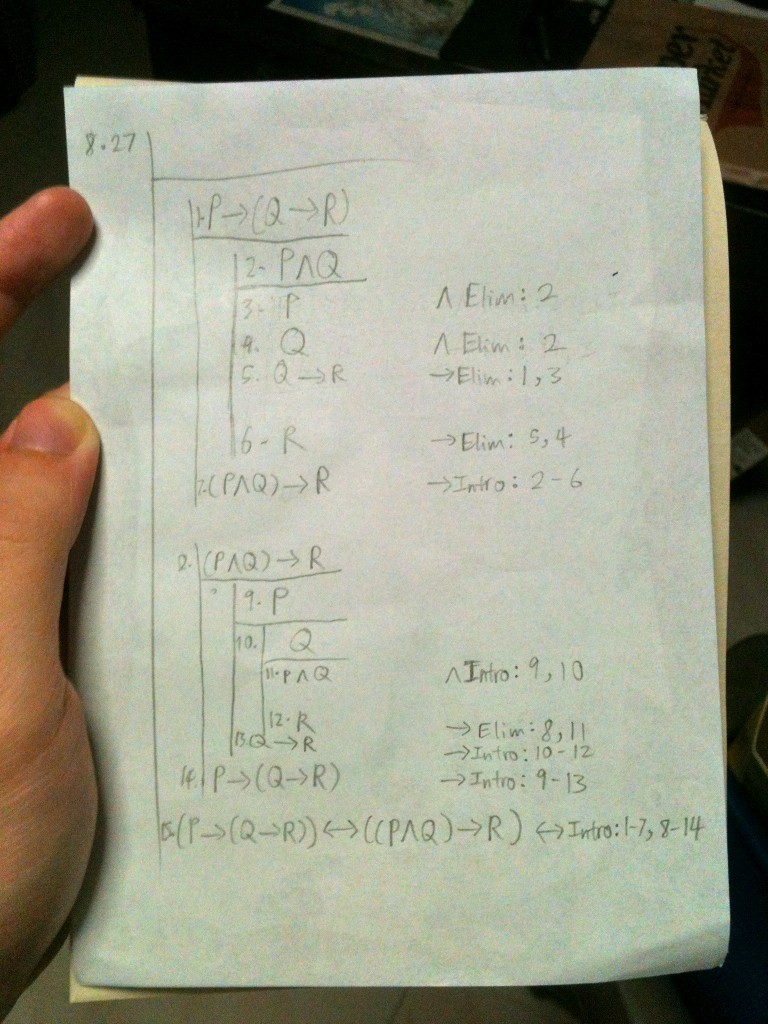
‘By Michael Biech (Philosophy) / Wikimedia Commons’
Philosophy is often misunderstood. Many NTU students tend to see philosophy as a chim (profound) subject because when they think of philosophy, they think of or remember how difficult philosophical text can be to understand. For example, here’s a quote from the French philosopher, Jacques Derrida in his essay, Différance:
But can one not conceive of a presence, and of a presence to itself of the subject before speech or signs, a presence to itself of the subject in a silent and intuitive consciousness? Such a question therefore presupposes that, prior to the sign, and outside it, excluding any trace and any différance, something like consciousness is possible.
As you can see, mind-boggling sentences are commonplace in philosophy. Philosophers tend to use complex language when explaining complex concepts, and this is what irks most people who dislike studying philosophy. But philosophy, as it is taught in NTU and other modern universities, actually encourages philosophy students to write as concise and clearly as possible. It’s essentially General Paper at A-levels, except that you are not dealing with general topics anymore; you discuss particular ideas from particular philosophers. One exception would be when you learn FOL (First-order Logic), which is somewhat mathematical in nature. But FOL trains you to be more sequential when writing arguments in plain English.

A completed proof of a valid argument in First-order Logic.

Mathematics in philosophy? Describing objects in a virtual world using First-order Logic, which trains you to be more sequential when writing arguments in plain English.
Historically, French and German philosophers wrote in a convoluted manner. It is understandable why they do it; complex ideas often need to be explained using similarly complex language. But my experience with philosophy professors from NTU and the University of Missouri-Columbia (where I was on exchange) tells me that a good philosopher is someone who is able to explain even the most complex philosophical ideas using simple language. In class, philosophy professors often break down complex arguments into their barest form: A series of short sentences that flow smoothly from one to another. A very simple example of logical consequence that is always used in philosophy class looks like this:
1. Men cannot fly.
2. Socrates is a man.
3. Therefore, Socrates cannot fly.
So as you can see, like any other subject, your philosophy educators are there to help simplify things. They are not there to further complicate things; unless you count the part where they counter your counter-argument, and you try to counter their counter, and then they counter your counter to their counter… which eventually makes you realise that philosophy is not difficult to study, but difficult to use to find concrete answers. Regardless, once you have taken a few philosophy classes at NTU, you will slowly realise that philosophy not only conditions you to be a critical thinker, but a better arguer as well.
You will be surprised to discover how useful the ability to craft logical arguments is. From a certain philosophical perspective, language defines how we perceive reality. So mastering how to craft logical arguments means mastering language itself, and mastering language means mastering your perceived reality in the sense that you could potentially convince anyone to agree with your ideas. Some skeptics call this the art of rhetoric, but I call this the supremacy of logic. Regardless of what it is called, this ability does not just help you in philosophy; it carries over to other subjects. In a way, philosophy is like a writing class that trains you to write tersely without compromising on your expression of ideas. Writing philosophical essays has helped me write better essays in other subjects such as communication studies, too. If you specialise in journalism and take philosophy classes, all the better. You will write very economically and accurately.
Another great reason to study philosophy at NTU nowadays is that the existing list of philosophy modules is growing more varied. When I first entered NTU, the philosophy modules offered were standard stuff like “Introduction to Philosophy”, “Logic and Paradoxes” and “Chinese Philosophy”. But since last semester, “Reason and Faith” and “Knowledge and Reality” have been added to the list. These two modules are essentially religious philosophy and epistemology (the study of knowledge’s origin) respectively. In the near future, a philosophy of art module might even be added.
Philosophy might seem intimidating at first. But once you understand how it works, you will realise that it is the most enlightening and equalising force in existence. For in philosophy, everybody is equally clueless. As French philosopher Voltaire once said: “Doubt is not a pleasant condition, but certainty is absurd.”
Comments? Email us at hey@ntu.edu.sg
